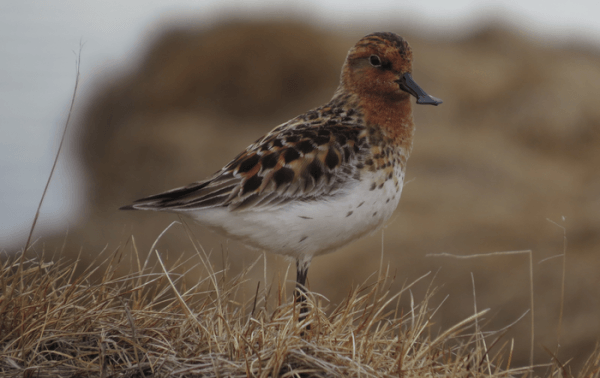Animals that migrate north to breed are being put at risk by ongoing climate change and increasing human pressure, losing earlier advantages for migration, declining in numbers and faring much worse than their resident counterparts, according to scientists writing in Trends in Ecology & Evolution.
Many animals, including mammals, birds and insects migrate long distances north to breed, taking advantage of the seasonally plentiful food, fewer parasites and diseases, and the relative safety from predators.
However, the international research team, including scientists from the University of Bath, found changes in climate and increasing human pressure have eroded these benefits and in many cases led to lower reproductive success and higher mortality in migrating species.
The researchers warn that reduced advantages for long-distance migration have potentially serious consequences for the structure and function of ecosystems.
Read more at University of Bath
Image: Male of critically endangered Spoon-billed Sandpiper (Calidris pygmaea) at a breeding ground, a species suffering higher nest predation rates recently, Chukotka, Arctic Russia. (Credit: Vojtěch Kubelka)


